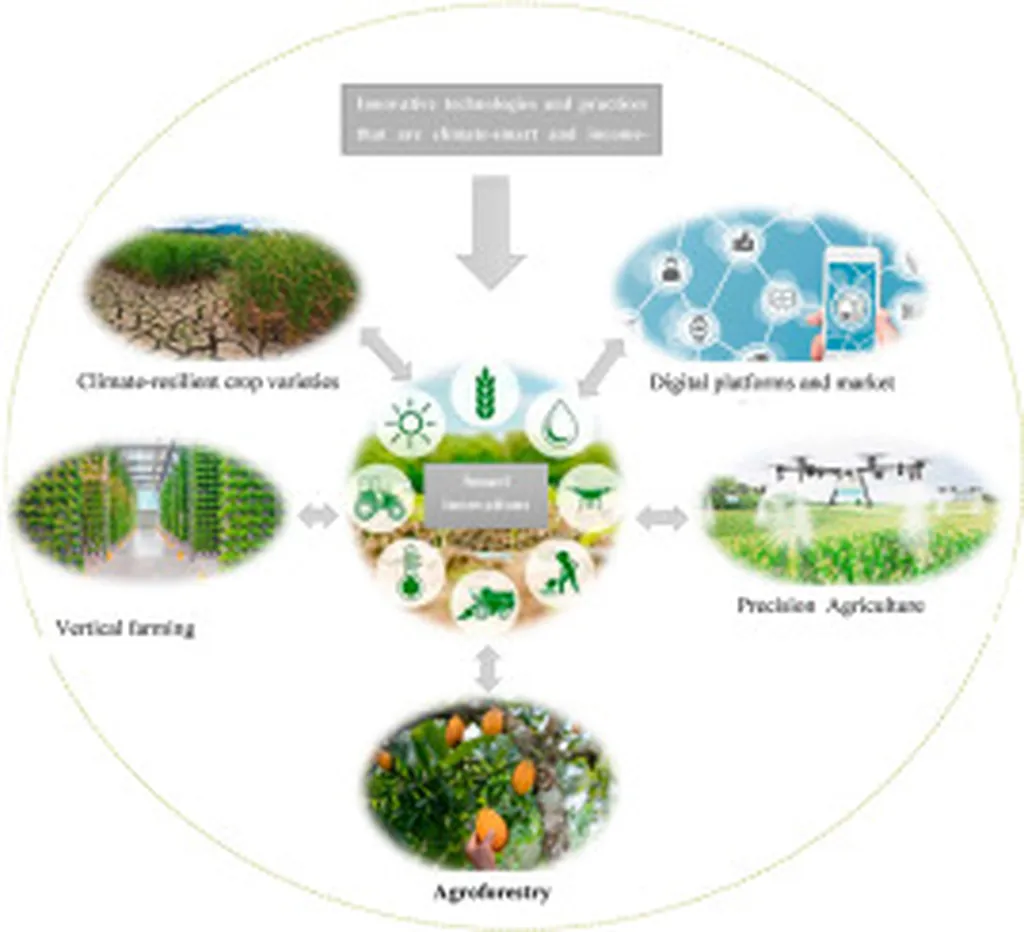In an era where climate change is reshaping agricultural landscapes, a comprehensive review published in *The Scientific World Journal* offers a beacon of hope for farmers and researchers alike. The study, led by Arebu Hussen Yimer of the Institute of Agronomy, systematically examines 65 peer-reviewed studies to evaluate nutrient management strategies under the looming threats of climate change. The findings underscore the urgent need for innovative approaches to maintain crop productivity while safeguarding the environment.
Climate change is disrupting traditional nutrient management practices, which often rely on excessive chemical fertilizers. These practices contribute to nutrient losses, soil degradation, and greenhouse gas emissions, creating a vicious cycle that exacerbates climate change. “Conventional fertilizer practices are shown to be inefficient and environmentally harmful,” Yimer notes, highlighting the need for a paradigm shift.
The review reveals that elevated temperatures and altered precipitation patterns are altering soil nutrient cycles and microbial activity, ultimately reducing crop yields and grain quality. Erratic rainfall patterns, in particular, exacerbate nutrient losses through leaching and runoff. This poses significant challenges for farmers, who are already grappling with the impacts of climate change on their livelihoods.
However, the study also identifies promising strategies that can mitigate these challenges. Integrated nutrient management, precision agriculture, and biofertilizers are emerging as key solutions. Slow- and controlled-release fertilizers, site-specific nutrient management, and decision support systems are significantly improving nutrient use efficiency and reducing greenhouse gas emissions. Conservation agriculture and organic amendments are further enhancing soil health and resilience.
These findings have profound implications for the agriculture sector. As climate change continues to disrupt traditional farming practices, the adoption of these innovative strategies can help farmers maintain productivity while minimizing environmental impacts. “Integrated and adaptive nutrient management frameworks, supported by technology and agroecological practices, are critical for maintaining high productivity while minimizing environmental impacts under climate change,” Yimer emphasizes.
The study offers actionable insights for researchers, farmers, and policymakers, highlighting the importance of nutrient management in climate-smart agriculture. By embracing these strategies, the agriculture sector can secure food systems in a changing climate, ensuring sustainable crop production and long-term soil fertility.
As the world grapples with the challenges of climate change, this review serves as a timely reminder of the need for innovative and sustainable agricultural practices. By adopting these strategies, farmers can not only maintain productivity but also contribute to the global effort to mitigate climate change. The future of agriculture lies in these integrated and adaptive nutrient management frameworks, which promise to secure food systems for generations to come.

